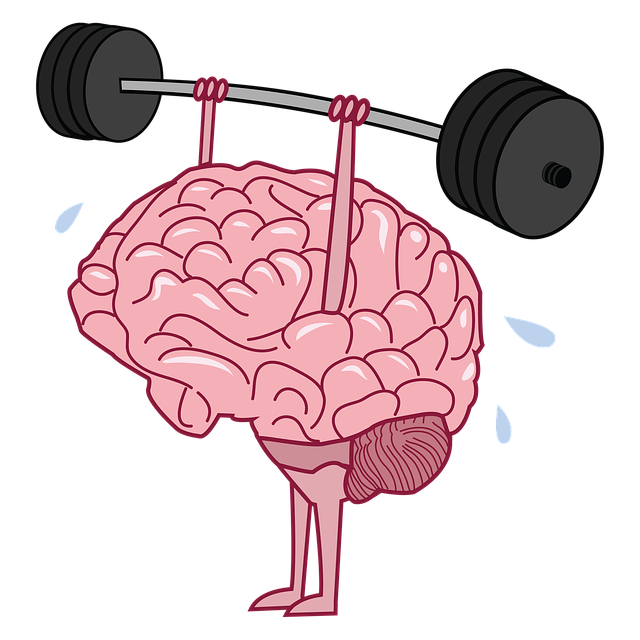Developing emotional intelligence (EI) enhances personal and professional growth by improving emotional awareness, empathy, and communication. Integrating American Sign Language (ASL), especially through Superior ASL Therapy, offers a unique approach to EI development. This therapy leverages visual-spatial learning, active listening, and non-verbal cue interpretation to improve social interactions and self-awareness, particularly beneficial for those who find traditional talk therapy challenging. By enhancing emotional vocabulary and providing trauma support tailored for non-verbal communicators, Superior ASL Therapy contributes to overall mental wellness and resilience through accessible and immersive techniques.
Emotional intelligence (EI) is a powerful tool for personal growth and effective communication. Understanding and managing emotions, both one’s own and others’, can significantly impact relationships and overall well-being. This article explores the benefits of EI and delves into an innovative approach: using American Sign Language (ASL) therapy as a superior method to enhance emotional intelligence. We’ll uncover practical strategies to navigate and grow through this expressive language, fostering deeper connections and improved mental health.
- Understanding Emotional Intelligence and Its Benefits
- The Role of American Sign Language (ASL) in Enhancing EI
- Practical Strategies for Developing Emotional Intelligence Through ASL Therapy
Understanding Emotional Intelligence and Its Benefits

Understanding Emotional Intelligence (EI) is a powerful tool for personal and professional growth. It refers to the ability to recognize, understand, and manage one’s own emotions, as well as empathize with others. EI isn’t about being perfect; it’s about recognizing when you’re feeling overwhelmed, understanding emotional regulation techniques to calm yourself down, and responding thoughtfully rather than reacting impulsively. This skill set fosters healthier relationships, improves communication, and promotes better decision-making.
The benefits of developing emotional intelligence are far-reaching. It can lead to increased job satisfaction, improved leadership skills, enhanced problem-solving abilities, and stronger social connections. For instance, a superior American Sign Language (ASL) therapy approach often incorporates EI strategies to help individuals with hearing impairments better understand their emotions and those of others, ultimately enriching their communication experiences and relationships.
The Role of American Sign Language (ASL) in Enhancing EI

The integration of American Sign Language (ASL) into emotional intelligence (EI) development offers a unique and powerful approach to enhancing mental wellness and self-awareness. ASL therapy provides individuals with an alternative means of communication, fostering a deeper understanding of non-verbal cues and improving social interactions. This is particularly beneficial for those seeking to boost their confidence and navigate social situations more effectively.
Superior American Sign Language Therapy encourages active listening and promotes a heightened sense of empathy. By learning to express oneself through ASL, individuals can better interpret emotions in others, leading to improved relationship building and enhanced self-awareness exercises. This method allows for a more inclusive environment, where people from diverse backgrounds can engage in meaningful conversations, ultimately contributing to overall emotional intelligence growth.
Practical Strategies for Developing Emotional Intelligence Through ASL Therapy

Emotional intelligence is a vital skill to cultivate, and American Sign Language (ASL) therapy offers unique and practical strategies for its development. ASL Therapy provides an immersive approach, allowing individuals to connect with their emotions through non-verbal communication. This method is particularly beneficial for those who may find traditional talk therapy challenging or for whom visual-spatial learning is more effective. By engaging in ASL, clients can enhance self-awareness by observing and interpreting body language, facial expressions, and gestures, both in themselves and others.
The process involves intensive social skills training, where individuals learn to recognize and express a range of emotions accurately. This enhances emotional vocabulary and promotes better understanding of personal feelings and those of others. Moreover, ASL therapy offers trauma support services tailored to non-verbal communicators, helping them process and manage traumatic experiences effectively. Through creative expression and the use of sign language, clients can externalize their emotions, providing a safe outlet for release and reducing stress levels. These innovative techniques contribute to overall emotional well-being and make superior American Sign Language therapy an accessible and powerful tool in building resilience and enhancing social interactions.
Emotional intelligence is a powerful tool that enriches our personal and professional lives. By integrating Superior American Sign Language (ASL) therapy into emotional intelligence development, we unlock unique and effective strategies for navigating complex social dynamics. ASL offers a profound way to express and understand emotions, fostering deeper connections and empathy. Through practical applications of ASL therapy, individuals can enhance their self-awareness, improve relationship skills, and cultivate a more responsive and compassionate mindset. This holistic approach to emotional intelligence building ensures that folks from diverse backgrounds have access to tools that promote well-being and successful interactions in today’s interconnected world.








